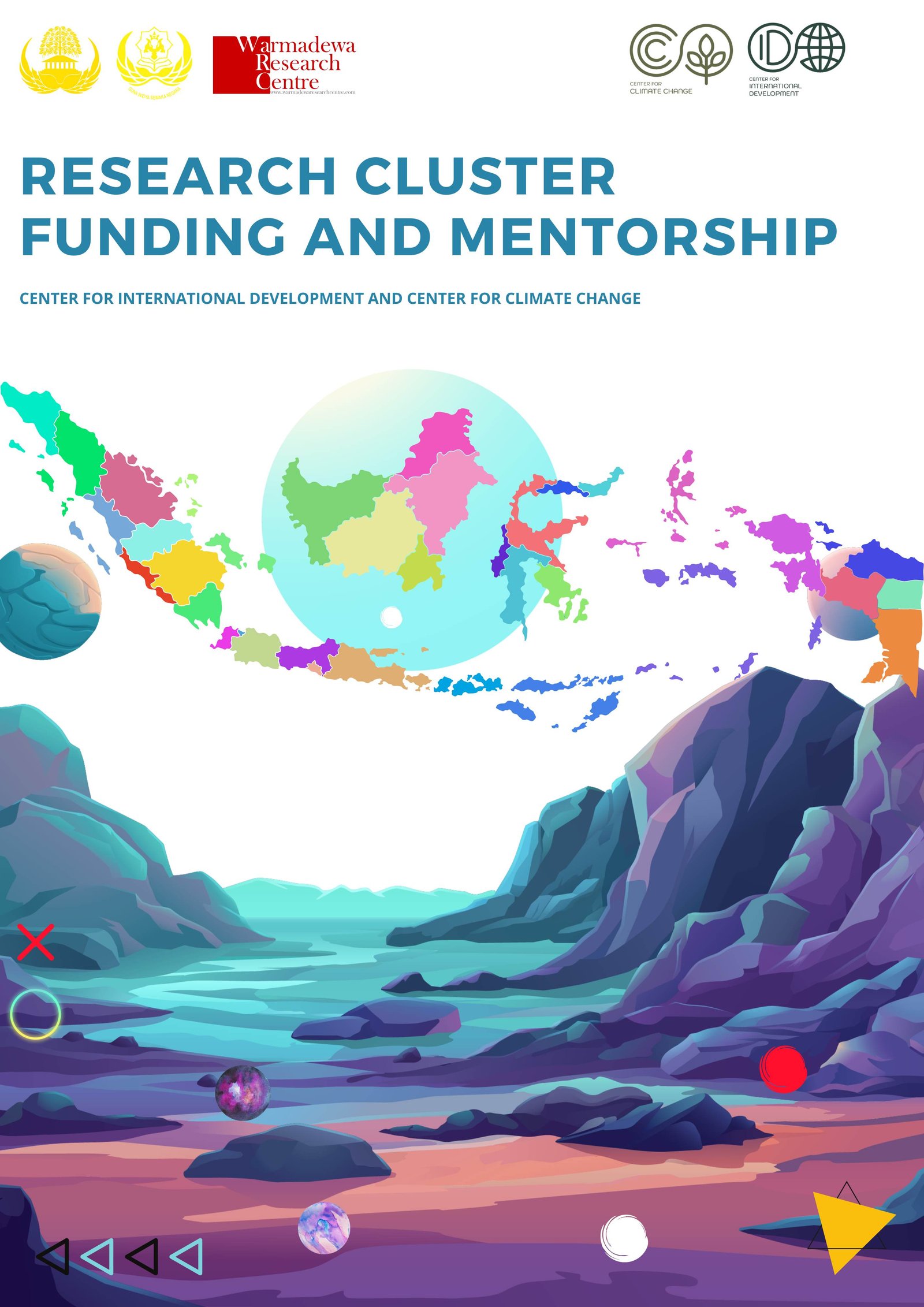-Photo by Agung Parameswara
Research Programs 18 Februari 2024
Research Cluster Funding And Mentorship
Research is a fundamental aspect of activities and serves as a measure of a university's excellence. The higher the caliber and quantity of research generated by an institution, the greater the perception of the institution's excellence among the general public.
Warmadewa University is dedicated to enhancing research quality by building a center for international development and a center for climate change, which will operate under the Warmadewa research center. The creation of these two study centers is a sustainability initiative by the Bali Province Korpri Welfare Foundation to maintain the institution's dedication to research, building upon the previous work of the WaRC team. The team has been responsible for managing funding since its formation in 2018, and this new endeavor is a continuation of their efforts. Over the course of its 6-year existence, more than 200 ideas have received funding.
Two research centers were established based on strategic considerations. The Center for Climate Change (CCC) at Warmadewa University is a research organization that encompasses many disciplines. CCC collaborates with Warmadewa University and a global community of experts to recruit, gather, and mobilize skilled individuals to address the most pressing global challenges, with a specific emphasis on pioneering research related to climate change. This institute provides scientific ways to build integrated climate change governance by offering mitigation and adaptation strategies. Climate change refers to the gradual alteration of Earth's local, regional, and global climates, which are characterized by the average weather patterns over an extended period of time. Human activities are the primary cause of the changes seen in Earth's climate since the mid-20th century. Human activities, such as the process of urbanization and the alteration of land use, have been associated with climate change. This, in turn, may have an effect on the occurrence of zoonotic diseases, biodiversity, and ecology (Hassel et al., 2016).
Second is The Center for International Development (CID). The contemporary notion of "development" often corresponds to "underdeveloped regions," a word that is commonly used in present times. The term "underdeveloped areas" implies a universal criterion for assessing development, whereby nations can be evaluated based on various standards. Underdevelopment is characterized by insufficient food, disease, primitive economic conditions, and poverty. In contrast, development is marked by scientific advancements, industrial progress, as well as skills and technical knowledge. Countries that match the established criteria are classified as "developed," whilst those that do not are classified as "underdeveloped." Development is the act of converting or changing something. The globe is now confronted with substantial challenges arising from several trends, such as climate change, migration, rising nationalism and populism, political instability, diminishing chances for civil society, and the use of new technologies.Warmadewa University has established a center for international development with the aim of recruiting and mobilizing skilled individuals to address global challenges. The institute will prioritize advanced research on international development problems. The Center facilitates collaboration between researchers and practitioners to address significant development issues from the standpoint of the global south. The Center for International Development (CID) conducts and oversees research focused on development studies using interdisciplinary methodologies.The CID conducts extensive research to emphasize the significance of information exchange in addressing development challenges. The Center for International Development (CID) recognizes the need of using varied views to promote inclusive development. Our strategy is on augmenting knowledge capacities, conducting research that informs development strategies in developing regions, and gathering skilled personnel to foster and cultivate innovative ideas in our research agenda.




